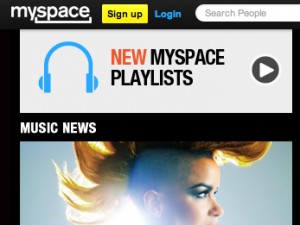By
Rob ScottDecember 19, 2012
YouTube has released a new basic iOS camera app that uploads automatically and makes sharing to social networks as easy as pushing just one button. Simply called Capture, it “comes with a few key features that make it superior to the default iOS camera app: It offers image stabilization and color correction, and users can trim clips and even add a YouTube-approved soundtrack,” reports GigaOM. Continue reading Google Aims to Replace iPhone Camera App with YouTube Capture
By
emeadowsDecember 18, 2012
By
Rob ScottDecember 17, 2012
Facebook will offer improvements to its privacy settings by the end of the year to allow users to change and understand their privacy settings without going to a remote privacy settings page.
The social network will provide a dropdown box on “almost every page,” reports The Atlantic. Facebook will also include messages alongside posts to help people understand who can see the specific status update or picture.
Changes to the privacy settings are intended to help people understand who can see content, and to help users target and remove inappropriate or unwanted content.
The changes will not affect Facebook’s data sharing, and Facebook will continue to leverage user data to build targeted advertising.
While The Atlantic classifies the changes as mostly “cosmetic,” it still says they are important because simplifying privacy control could help Facebook gain user trust.
By
Rob ScottDecember 17, 2012
After two months of testing, Facebook Gifts is rolling out publicly to U.S. users. TechCrunch predicts that Facebook could earn between $127.5 million and $1.02 billion per year with the social commerce product.
 “It lets people choose a friend, often someone who’s birthday or wedding it is, and give them a real-life gift or gift card,” explains the post. “At first it only allowed a few users to access the beta, but then let the service grow organically so anyone who received a Gift gained the ability to give them. It dropped another couple tens of millions of users into Gifts in late November, and now is finally publicly available so anyone in the U.S. can give to other people stateside.”
“It lets people choose a friend, often someone who’s birthday or wedding it is, and give them a real-life gift or gift card,” explains the post. “At first it only allowed a few users to access the beta, but then let the service grow organically so anyone who received a Gift gained the ability to give them. It dropped another couple tens of millions of users into Gifts in late November, and now is finally publicly available so anyone in the U.S. can give to other people stateside.”
Since the social network currently touts roughly 170 million U.S. users, the earnings potential is massive. TechCrunch maps out this potential based on number of users and an assumed average gift amount, and speculates that Gifts could account for 3 to 24 percent of the social network’s annual revenue.
“Basically, Gifts will complement Facebook’s advertising and gaming revenue but won’t replace them,” suggests the post. “If it made $510 million a year, that would be $3 per year in additional average revenue per user in the U.S. That would nearly double the U.S. ARPU from $3.40 to $6.40.”
Of course, if successful, these numbers could increase dramatically with an international release.


